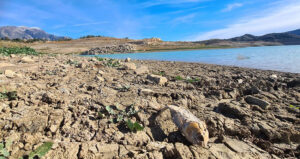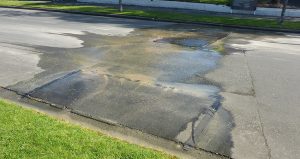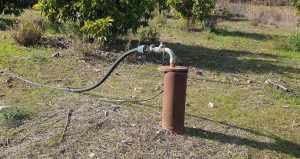Wastewater reuse in agriculture should become unique selling point

-
 Editorial Team
Editorial Team
Share article:
Agriculture in Southern European countries can benefit from wastewater reuse. Picture: Water News Europe.
Should the public be told their crops are watered with wastewater? This question about social acceptance was brought up in a session on Sustainable Water Treatment and Nutrient Reuse in agriculture during the International Water Week (2-6 November) in Amsterdam. To succeed wastewater grown crops should be seen as a unique and sustainable selling point.
Rafael Casielles, project manager of the Andalusian consultancy and engineering company BIOAZUL, started with SuWaNu, a European wastewater reuse project, in July 2013. The main goal is to promote wastewater reuse by exchanging knowledge between European regions. Clusters have been formed among academia, SME technology developers, SME farmers, wastewater treatment companies and agricultural associations from five different countries: Germany, Spain, Greece, Malta, Bulgaria.
Alternative irrigation sources
Casielles told water scarcity raises the need to seek for alternative sources to irrigate crops. Agricultural practise puts enormous pressure on fresh water resources. In countries in Southern Europe agricultural water use accounts for nearly 80% of the total amount of water use. European farmers face serious problems such as fresh water scarcity and nutrient availability, extreme climate conditions and the growing demand of an increasing population.
Constant resource
Treated wastewater has been identified as a great potential resource. “Europe is discharging millions of m3 of wastewater”, said Casielles. “About 80% of this wastewater is treated. It is a constant resource and existing technologies can provide treatment to achieve WHO standards for irrigation.”
An integrated approach is needed to support the establishment of a common European guideline and parameters for water and nutrient exploitation efficiency.
With a special focus on small- and medium-sized companies, the SuWaNu Project consortium develops strategies to enhance the innovative capabilities on resource efficiency. Participants develop a Joint Action Plan (JAP) and Business Plans at a European level to drive economic development in wastewater reuse in the agriculture sector.
Challenges
The SuWaNu project is ambitious. It aims at 50 % reduction of water costs for small farmers and the current pressure on European fresh water resources should be reduced by 20%. The project is developing sustainable irrigation schemes to safeguard sustainable agricultural production in water scarce regions.
Safe and sound
The challenges are about safe treatment, removing pathogens, creating an adequate legal framework, providing infrastructure investments and reducing operation costs. Another challenge of reusing wastewater is the social acceptance. Casielles: “At the moment consumers just don’t know wastewater is used to water their tomatoes. It’s a pragmatic solution. Caused by the Ehec-crisis years ago, when everybody blamed with wastewater grown cucumbers. Now companies rather don’t tell they use wastewater to irrigate crops. “I doubt that’s the best solution. We have to make clear wastewater is absolutely safe.” Somebody in the audience fully agreed. “We should turn it into a unique selling point”, he added. “It could be a marketing tool, a way to show you care about sustainability.”
Expanding network
The SuWaNu-project, with a total budget of 1.610.484.74 euro started in July 2013 and the first phase soon comes to an end. The project is searching for more partners to join the consortium, to broaden the range of research to other European countries. Twenty partners are joining the network at the moment, SuWaNu wants to expand to 75 partners.
Participants of the Amsterdam International Water Week, taking place last week during the Aquatech, were asked to register at www.SuWaNu.eu.

















